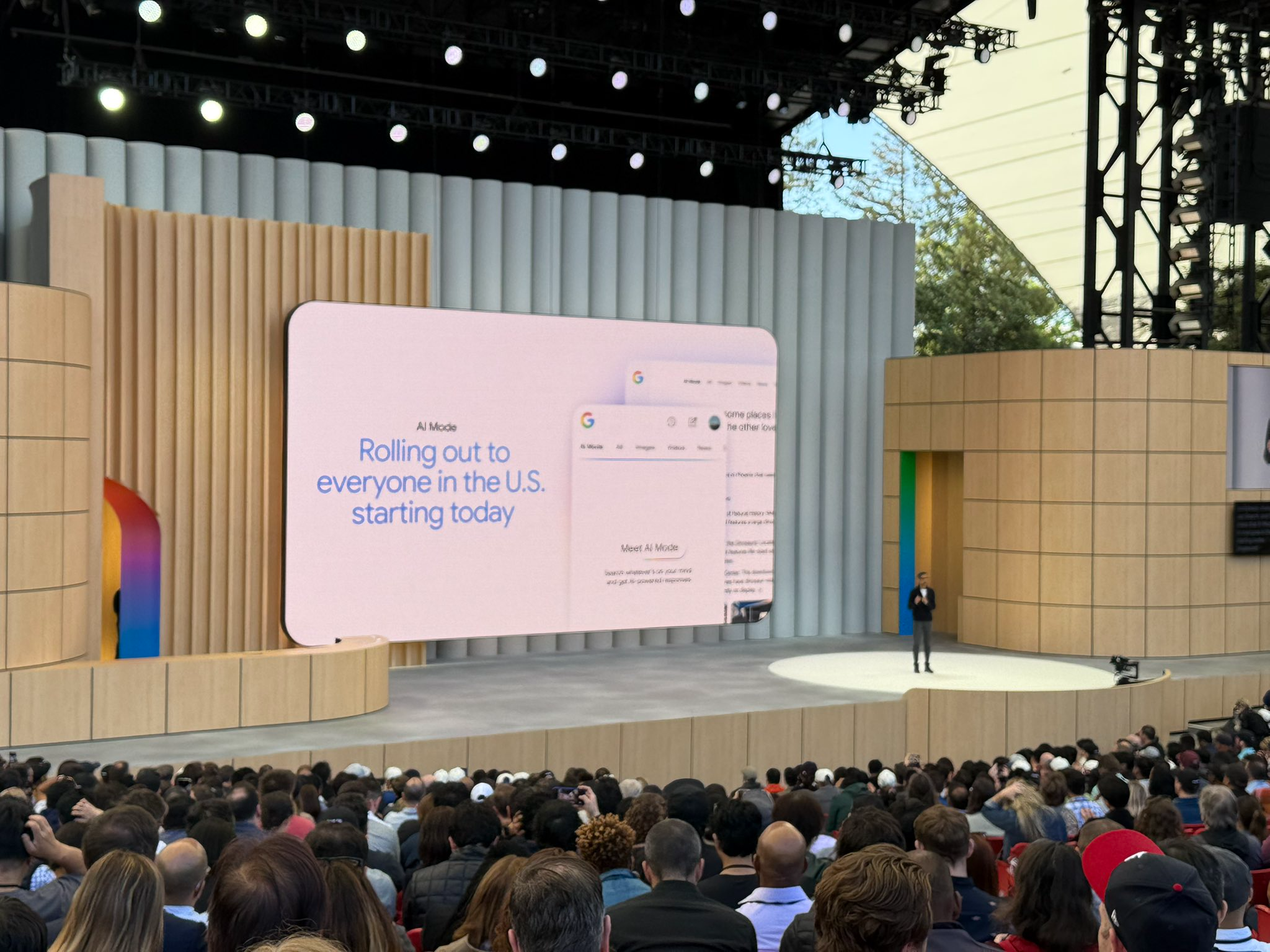Google’s latest I/O keynote delivered a packed agenda blending updates across AI, Search, Android, XR, and the future of human-device interaction. While Android 16 had its moment ahead of the event, the keynote turned its spotlight to what’s next: smarter Gemini integrations, a bold rethinking of Search, and the debut of Android XR glasses in a real-world demo.
Tools like Gemini Live are already rolling out on mobile, while Project Astra gave us a glimpse of what real-time, multimodal AI could soon look like. For Africa’s developers and digital entrepreneurs, these are signals for new platforms to build on, new interfaces to design for, and a new layer of intelligence baked into how people search, speak, and interact with technology.
From the rise of AI-first Search to cost-efficient generative models, here’s what matters, why it matters, and how Africa’s builders can start planning for what comes next.
See Also: Google I/O 2024: Here are the major announcements made
Gemini 2.5: AI that’s ready for real work
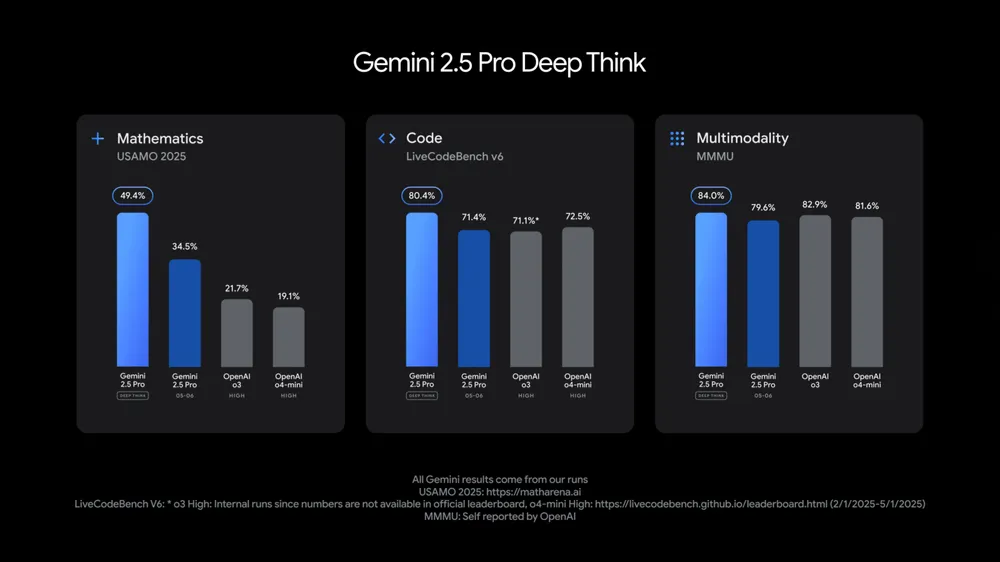
At I/O 2025, Google announced major upgrades to its Gemini AI models, open up exciting new possibilities for African startups and developers. Gemini 2.5 Pro now supports a massive 2 million-token context window, which means it can read entire books or legal documents in one go. That’s a big deal for local edtech, legaltech, and fintech platforms. A Nigerian SaaS tool could instantly analyse contracts, while a Kenyan education app could translate and summarise textbooks into Swahili or Amharic, cutting out the need for expensive manual work.
Developers also get access to Deep Think mode, which brings more advanced reasoning to Gemini. This can help with building smarter tools for health, finance, or civic services. And in places where internet access is limited, Gemini Nano can run directly on phones. That means users can get features like scam call detection or offline text summaries without needing to connect to the cloud.
Google also added real-time speech translation to Google Meet, using Gemini AI. It lets people speak in one language and have it translated into another right away, while still keeping the speaker’s voice and tone. For a continent with so many languages, this can make it easier to hold business meetings, attend online classes, or access remote services without language getting in the way.
Availability: Gemini 2.5 Pro is now available via the Gemini API and AI Studio, with new features like a 2M-token context window and native audio output. Deep Think mode is in limited preview, while Gemini Nano powers on-device AI through new Android and Chrome APIs. Real-time speech translation in Google Meet is coming soon, with rollout details yet to be confirmed.
AI in Search
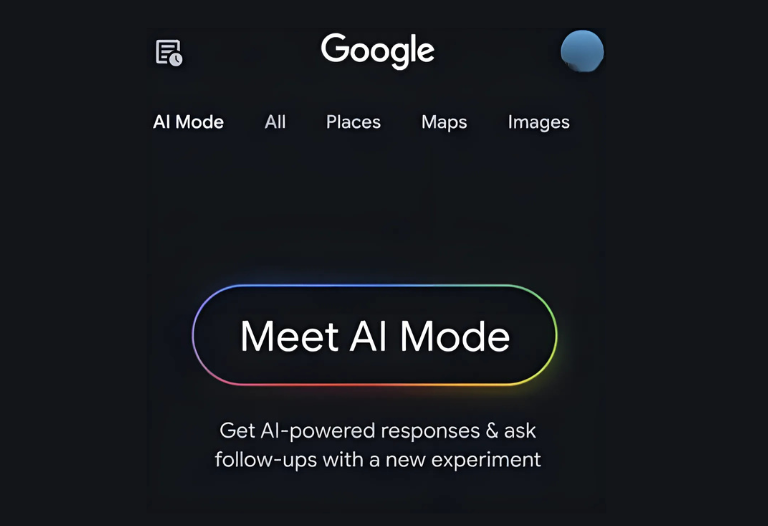
At Google I/O 2025, one of the most important updates for Africa’s tech community came from how Google is reimagining Search. AI Overviews are now live for everyone, offering quick, conversational responses at the top of search results. These summaries are powered by Gemini and are designed to give users what they need without opening multiple links.
This new experience changes how visibility on Google works. For African startups that rely on content, getting featured in these AI summaries is now the goal. A healthtech site sharing malaria prevention tips, for instance, can no longer rely on traditional SEO tactics alone.
Articles need to be well-organised, written around common user questions, and supported with clear metadata to stand a chance of being picked up by AI. The old idea of simply aiming to rank on the first page is fading. Content strategies now have to think in terms of usefulness, clarity, and structure that makes sense to AI.
Availability: AI mode is now being rolled out in Google Search for all US users, with new functions debuting there first before being incorporated into regular search.
Gemini for Developers: Building just got cheaper
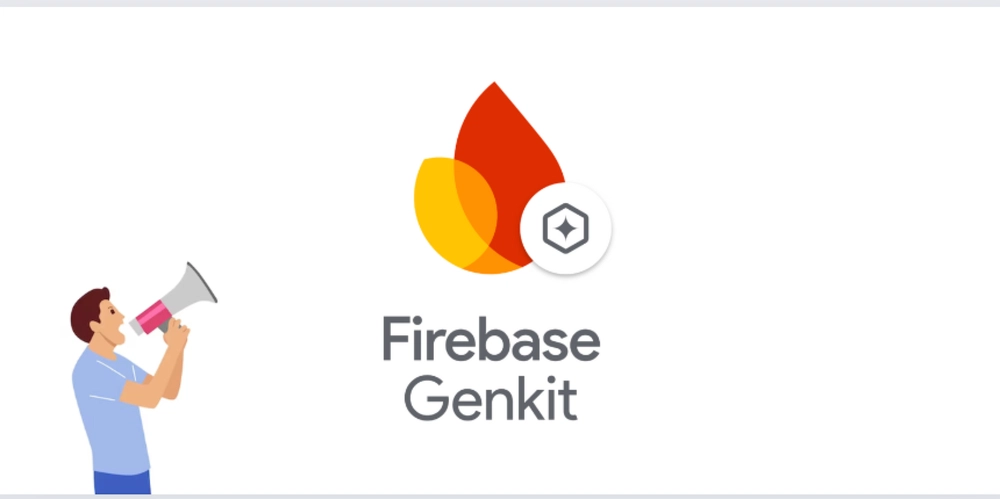
At I/O 2025, Google expanded access to its Gemini API and introduced models like Gemini Flash, giving African developers faster, low-cost tools to build AI solutions without needing large infrastructure.
To speed up development, Google expanded AI Studio at I/O 2025, turning it into a more powerful no-code platform with support for Gemini 2.5 models and Firebase Genkit, which simplifies back-end integration. The Jules Coding Assistant also debuted, understanding not just code syntax but the developer’s intent, helping improve software development workflows. For early-stage startups without in-house AI talent, these tools will drive ease.
Google also introduced Stitch, an AI-powered tool that transforms simple prompts or sketches into ready-to-use UI designs with code. Built on Gemini 2.5 Pro, Stitch speeds up app development by quickly generating frontend code and multiple design options, helping developers and designers experiment and refine their ideas effortlessly.
Adding to this, the tech giant launched affordable subscription plans like AI Pro ($19.99/month), giving resource-limited developers access to advanced AI. When paired with free tools and Google Cloud credits for eligible startups, these plans lower the financial barrier to innovation even further.
For African startups tackling local challenges in education, health, or agriculture, this moment is big. With the right tools finally within reach, building impactful, AI-driven solutions just got a lot more possible.
Availability: Flash is already available in the Gemini app for all users and will be generally released for production environments from June. Stitch is currently available as an early preview under Google Labs at stitch.withgoogle.com.
Project Mariner: A win for mobile-first Africa
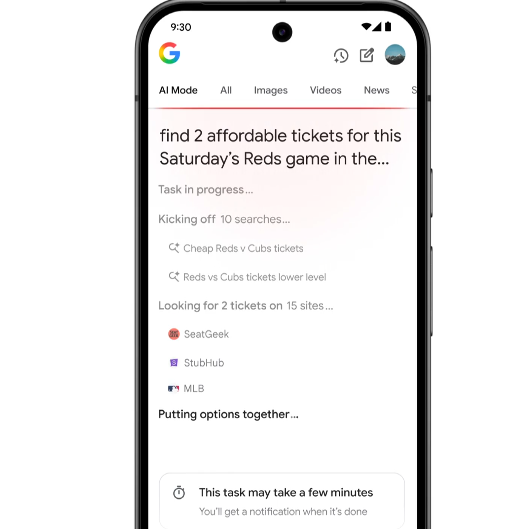
With over 84% of African smartphone users on Android, Google’s new AI-powered Project Mariner Mariner could change how millions interact with the internet. This AI agent browses multiple websites, summarises content, and handles tasks while users focus on other things. In busy cities or remote areas where time and connectivity are limited, this can make a big difference.
Android 15 already addresses Africa’s unique needs with features like satellite messaging for offline texting, Private Space to protect sensitive data on shared phones, and improved battery life on mid-range devices, helping developers build more resilient and privacy-conscious apps. Project Mariner takes this further by adding an AI assistant that multitasks, making mobile use more efficient and personalised. It also opens new opportunities for African investors, with potential to solve local challenges in agriculture, healthcare, and education through AI-driven automation.
However, there are challenges. Google’s DeepMind CEO Demis Hassabis warned about AI “hallucinations,” where the system can confidently provide incorrect answers, risking user trust. Publishers also worry as AI agents skim their content, potentially drawing away attention and revenue.
For Africa’s developers and creators, this moment demands adaptation or the risk of being left behind as Google shifts the web toward an AI-first future.
Availability: Set to be incorporated into AI Mode in Google Search by summer 2025.
Project Astra now brings voice, vision, and context together to solve real-world challenges
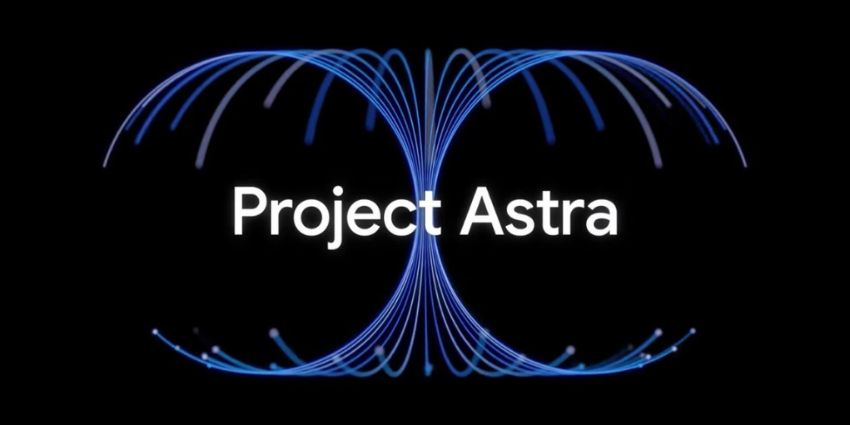
At Google I/O 2025, Project Astra, first teased in 2024 as a research prototype, returned as one of the key highlights. It’s now built into Google Search, the Gemini app, and tools for developers. For Africa, this kind of AI, one that understands visuals, voice, and context, could help solve real problems around literacy, language barriers, and patchy internet.
Astra lets users interact with their phones in real time using the camera and microphone. A farmer in Uganda could point their phone at a sick cassava plant and get advice in their local language. In Lagos, a warehouse worker could manage stock just by speaking, no typing needed. It’s the kind of tech that could make tools in farming, education, and small businesses a lot more useful and easier to use.
It already works in 24 languages and can switch between them naturally, which is a big deal in a region as multilingual as Africa. And because it runs on Android and iOS, more people can access it. Astra also powers a new “Live” button in Google Search that lets you ask questions about whatever your camera sees and get answers right away.
What makes Astra especially promising is its growing ability to “read the room.” As DeepMind CEO Demis Hassabis puts it, this means knowing when to act, what tone to take, and—just as crucially—when to stay silent. It’s the kind of subtle intelligence that’s incredibly hard to build but essential for making AI feel more helpful and human in everyday situations.
For local developers, having Astra inside Google’s tools means they can start building apps that work with voice and video, not just text. It’s a chance to create smarter, more helpful solutions that actually fit how people live and work across the continent.
Availability: Available in 24 languages, with more expansion expected. Google has yet to announce a launch date for its Project Astra smart glasses, currently in beta for Google AI Pro and Ultra users.
See Also: Top 7 AI Research Assistants you can use now
Hardware and Compute: Africa enters the Global AI Grid
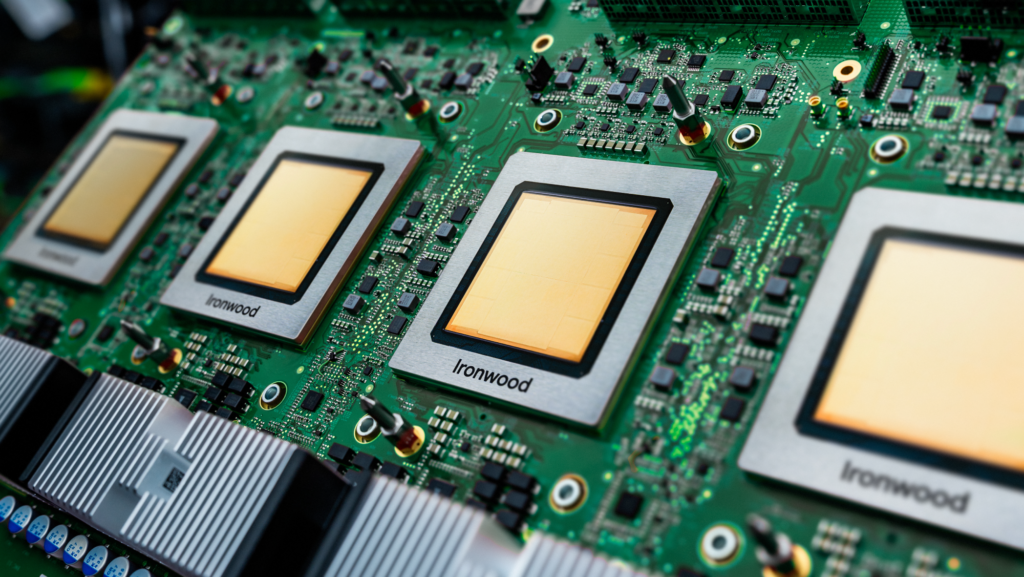
Behind all these tools is compute, and Google is investing heavily. It introduced Ironwood, its seventh-generation Tensor Processing Unit (TPU), designed specifically for inference workloads. Ironwood delivers 10 times the performance of its predecessor and offers 42.5 exaflops of compute per pod, enabling advanced models like Gemini 2.5 Pro to run efficiently at scale.
TPU (codenamed Trillium), which boosts performance per watt by nearly five times compared to earlier chips. These leaps in hardware efficiency are critical for supporting AI in real-world applications, especially in resource-constrained environments.
For Africa, this matters more than ever. Thanks to improved connectivity through infrastructure like the Equiano subsea cable linking Europe to West Africa, data transfer speeds and latency have significantly improved in hubs like Lagos, Accra, and Cape Town. This makes cloud-based AI development more practical and affordable across the continent.
Startups in Nairobi or Lagos can now consider training AI models fine-tuned to local languages and contexts without requiring costly upfront infrastructure. As more local data centres come online, the expense and barriers to running advanced AI workloads will continue to fall.
Ironwood’s multimodal capabilities further enable agent-based AI that can independently plan and execute complex workflows, opening doors to smarter, more autonomous tools in fields from healthcare to education.
Availability: Ironwood TPU is expected to be available later in 2025.
African creators and media houses get one or four for the road
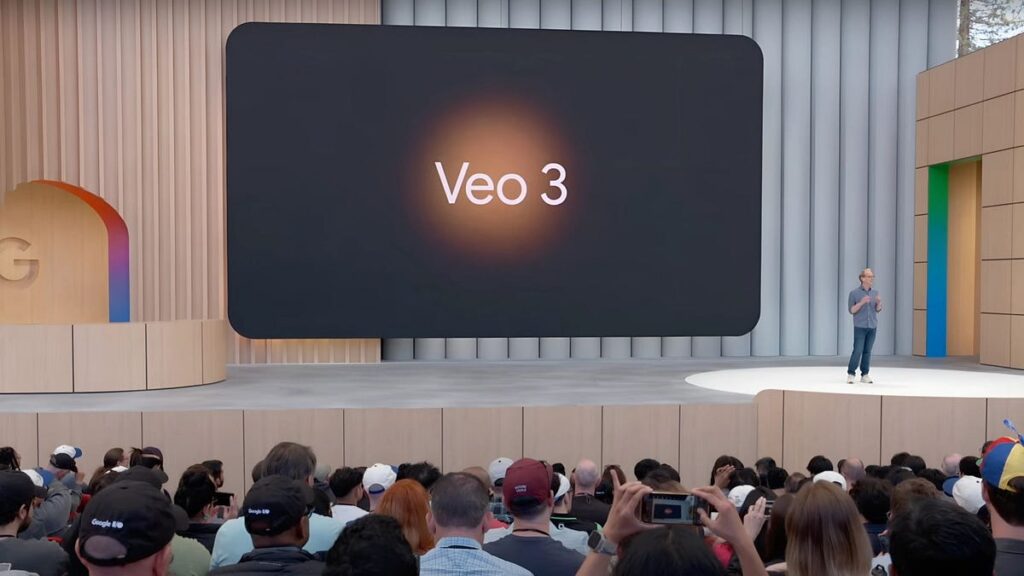
Google went beyond business tools and released several new creative AI systems that will change how we make videos, images, and music.
Flow is Google’s new AI app for filmmakers that can create complex video scenes from text descriptions. Famous director Darren Aronofsky, who made “The Whale” and “Black Swan,” is already incorporating these tools in his creative workflow—proof that professionals are taking them seriously.
Imagen has reached version 4, with better detail and realism in generated images. Veo 3 improves video generation with more realistic output and can now add sound effects, background sounds, and voices. This gives creators everything they need to make complete videos with less equipment and fewer people.
Lyria 2, Google’s updated music generation system, can now create full songs and edit existing music. This could help African musicians make professional-sounding tracks without expensive studio time.
Google also launched SynthID, which adds invisible watermarks to AI-generated content that can be verified later. This helps people tell what’s AI-created and what’s not, which is getting harder to figure out.
These tools give African media creators new ways to make high-quality content faster and cheaper than before.
Availability: Google hasn’t shared exact rollout dates for SynthID and Lyria 2 yet, but both are expected to power content across its AI media tools. Imagen 4 is already live via the Gemini app, Vertex AI, Whisk, and integrated into Google Workspace apps like Slides, Docs, and Vids. Veo 3, meanwhile, is currently limited to U.S. users on the $249.99/month AI Ultra plan, with no global release timeline confirmed.
What this means for the African tech scene
While global conversations often focus on AI replacing human jobs, Google’s tools are actually building blocks designed for global, mobile-first audiences. This approach fits perfectly with Africa’s tech needs.
African startups should start using Gemini features now. Add smart replies and AI summaries to make your products better. Content teams need to prepare for how AI will change Search. Developers can use Android 15 and Astra to create new mobile experiences that work well in Africa.
Investors should look for startups using these tools to solve African problems. The best opportunities aren’t about following global trends but adapting these tools for local needs.
African tech builders who create practical, locally-relevant AI applications will lead a uniquely African tech revolution. They’ll use global innovation to solve regional challenges and create new opportunities.
Get passive updates on African tech & startups
View and choose the stories to interact with on our WhatsApp Channel
Explore

